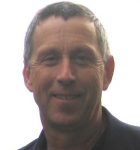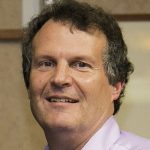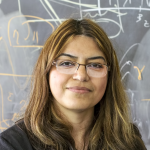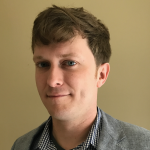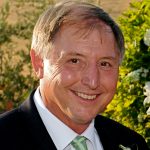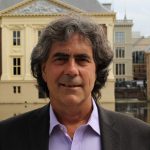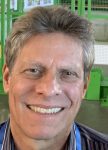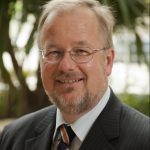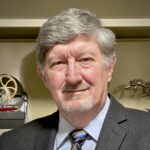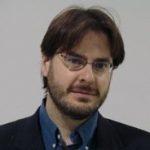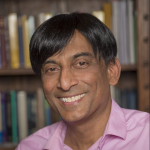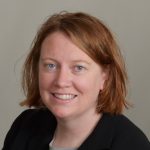The charge to the Physics Department Board of Visitors is to:
- Advise and assist the Department in increasing awareness among alumni, students, peers, and the general public of the Department’s achievements.
- Assist the Department and the UW Foundation in fundraising for needs that are not met by general purpose revenue.
- Serve as ambassadors and advocates for the Department.
- Advise on mechanisms for optimizing the collective impact of the Department’s research activities.
- Provide mentoring, networking, and career assistance to Physics undergraduates, graduate students, and post-doctoral associates.
- Help the Department assess the impact of new research directions on society.
UW Foundation Representative
The UW Foundation Representative to the UW–Madison Physics Department and its Board of Visitors is Mae Saul, Associate Director of Development. She can be reached by email at mae.saul@supportuw.org or by phone at (608) 216-6274.
Members of the Board
Carl J. Anderson
Dr. Carl J. Anderson received his B.S. in physics from the University of Missouri in 1974 and his Ph.D. in Physics from the University Wisconsin–Madison in 1979. A lifelong employee of IBM Corporation, Carl is now at IBM in Austin, TX and in 2000 became an IBM Fellow.
Thomas Dillinger
Tom’s ties to the University of Wisconsin-Madison are many and varied. He received a BS-AMEP degree in 1977 (Phi Beta Kappa), and an MS-EE degree in 1978. He was an Adjunct Professor in the ECE Department in 1982-3, introducing a new course in Applied Microelectronics. He has served as a member of the ECE Department’s Industry Advisory Committee. His father was Joe Dillinger, Professor in the Physics Department from 1946 until 1975. After many years at AMD, Tom joined Oracle Corporation working in the former SPARC division of Oracle acquisition Sun Microsystems.
Fatima Ebrahimi
Dr. Fatima Ebrahimi received a BSc in Physics from the Polytechnic University of Tehran in 1993 and a Ph.D. in Plasma Physics at the University of Wisconsin-Madison in 2003. She is a Principal Research Physicist at the PPPL Theory Department and an Affiliated Research Scholar at the Department of Astrophysical Sciences, Princeton University. Her research interests span from magnetically confined fusion plasmas to flow-driven plasmas, such as accretion disks.
Josh Friess
Josh received a B.S. in Physics and Math at UW-Madison, and his Ph.D. from Princeton University, writing his thesis on string-theory inspired models of gold nuclei collisions at the Relativistic Heavy Ion Collider. Most recently, Josh has provided consulting services to the not-for-profit sector, and has served as a director of multiple not-for-profit organizations.
Lloyd Hackel
Dr. Lloyd Hackel works in high power lasers and materials science. He is VP, Advanced Technologies of Curtiss-Wright’s Metal Improvement Company. This followed a 28-years at LLNL where he became head the Program for Laser Science and Technology directing development of high power lasers and applications. Lloyd received a BS degree in Applied Mathematics and Engineering Physics from the University of Wisconsin in 1971 and from MIT a Masters of Science in 1973 and Doctor of Science in 1974.
Paul Hatchell
Paul earned his BS (1983: Astronomy-Physics, Math) and PhD (1989: Physics) at the University of Wisconsin-Madison. After graduation, Paul worked as a research physicist for 31 years at various Shell technology centers around the world.
Craig S. Heberer
Craig received his BS in Applied Mathematics, Engineering, and Physics (AMEP) from the University of Wisconsin – Madison, his MS in Mechanical Engineering from Stanford University, and his MBA from Duke University. Craig worked in aerospace, engineering consulting, and medical technology. He now consults to high technology companies.
Thomas K. (Tom) Holley
Position title: Board of Visitors Chair
Tom earned his Ph.D. with Chun Lin at University of Wisconsin–Madison in 1982. After nearly 28 years in petroleum exploration research at Shell Oil Co. in Houston involving the acquisition, processing, and interpretation of seismic data, Tom retired early to establishing the new Petroleum Engineering Department at the University of Houston. He retired again back to Wisconsin in 2016, teaching introductory physics and astronomy part-time for one year at UW – Washington County before retiring for the final(?) time.
Rock Mackie
Dr. Rock Mackie, a professor emeritus of medical physics at the University of Wisconsin-Madison. Dr. Mackie’s career has been focused on planning and delivery of radiation therapy to cancer patients. His group developed the 3-D treatment planning system that became the Philips Pinnacle treatment planning system, the most widely used radiation therapy treatment planning system in the world. His group was also the developer of tomotherapy, which is the marriage of a linac and a CT scanner.
Bill Nichols
Bill earned his B.S. in Physics and Astronomy at UW–Madison in 1975 and M.S. in Defense and Strategic Studies at Missouri State University in 2008. He is a former U.S. Navy nuclear submarine officer and has 40-years of experience in the defense and aerospace industries. In 2020, he retired from The Boeing Company where he was a Technical Director supporting the Missile Defense Agency (MDA). Bill has since re-located to Madison and works part-time as an Independent Contractor for MDA.
Greg Piefer
Dr. Piefer received Bachelor’s degrees in Physics and Electrical and Computer Engineering from the University of Wisconsin – Madison before entering graduate school in the Nuclear Engineering program. In graduate school, he studied nuclear fusion under Dr. Gerald Kulcinski earning his Ph.D. in 2006. He is the founder and CEO of SHINE Medical Technologies a leader in safe, clean, affordable production of medical tracers and cancer treatment elements.
Raghu Raghavan
Raghu Raghavan received his PhD from UW-Madison in Physics in 1976. He was the Founder & Director, Center for Information-enhanced Medicine at the National University of Singapore, Singapore. Since 2004 he has been the president of Therataxis, LLC, a consulting company that researches biomedical physics applications in drug delivery, biomechanics, ultrasound, and related fields.
Jenni (Sebby) Strabley
Position title: Board of Visitors Vice Chair
Jenni received her Ph.D in physics of UW-Madison in 2004. After graduation, she was a National Research Council Postdoctoral fellow at the National Institute of Standards and Technology (NIST). Since 2007, she has worked at Honeywell Aerospace in a variety of roles including technology development, operations, and product management. Jenni is currently the Chief Product officer for Honeywell Quantum Solutions.
Senthil Sundaram
Dr. Sundaram received his PhD from the University of Wisconsin–Madison, with Professor Bob Joynt. After spending 25 years on Wall Street in the hedge fund industry, Senthil recently moved back to Madison to co-found Kula Investments, LLC serving as Chief Investment Officer (CIO).
David Webber
After receiving a PhD in physics, David worked as a post-doc at UW-Madison from 2010-2013 studying reactor neutrinos. In 2013, David co-founded Scanalytics, Inc which develops sensor-enabled flooring underlayment, machine vision, and software integrations to make buildings smarter about energy usage and occupancy.

